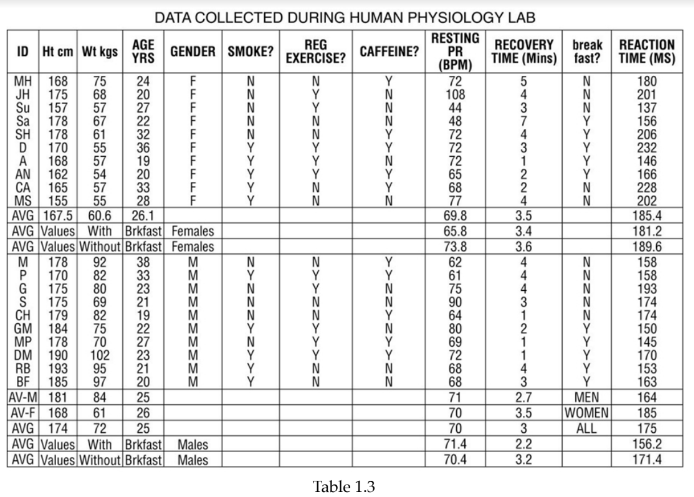Refer to Table 1.3 and the bar graph.
A. Write a hypothesis regarding the effects of breakfast consumption on reaction time.
B. What is the dependent variable? What is the independent variable?

A. A prediction such as "Eating breakfast prior to testing improves reaction time of subjects (compared to subjects who did not eat breakfast)" is appropriate.
B. The independent variable is breakfast consumption; the dependent variable is reaction time.
You might also like to view...
Which is not found in the wall of the large intestine?
A. Goblet cells B. Simple columnar epithelium C. Lymphatic nodules D. Villi E. Intestinal glands
During menopause, the vaginal wall
A. becomes thicker. B. becomes thinner.
Which one of the following statements about aging is most accurate?
A) The brain reaches its maximum weight around the seventh decade of life. B) Synaptic connections are too fixed to permit a great deal of learning after the age of 35. C) Despite some neuronal loss, an unlimited number of neural pathways are available and ready to be developed; therefore, additional learning can occur throughout life. D) Learning throughout the adult and aging years is supported primarily by glial proliferation. E) Increased efficiency of the sympathetic nervous system enhances the ability to learn.
The enzyme RNA polymerase participates in translation
Indicate whether the statement is true or false